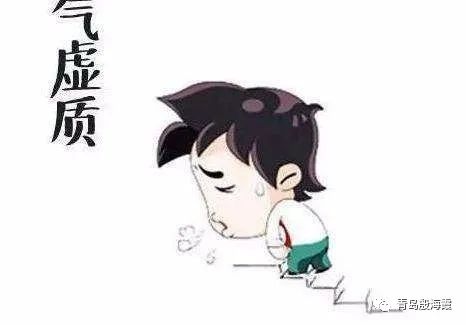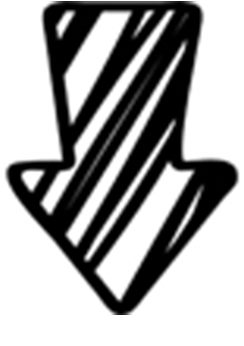

Individuals with a Qi deficiency constitution often experience fatigue, low voice, and relative insufficiency of the lungs and spleen, leading to weakened resistance and digestive function. Those with a Qi deficiency constitution should engage in more exercise, avoid excessive thinking, and consume foods that are neutral to slightly warm and have nourishing properties.
Main manifestations of Qi deficiency constitution: Weak spleen and lung function
Qi deficiency constitution is similar to Yang deficiency constitution, but each has its characteristics. Yang deficiency is primarily characterized by deficiency of Yang Qi, insufficient warmth, and a tendency to feel cold; while Qi deficiency, although having a tendency towards Yang deficiency, mainly reflects low organ function, especially with the lungs and spleen being relatively weaker.
1. Individuals with Qi deficiency speak in a low and timid voice, with shallow breathing. They have poor adaptability to the environment and are prone to colds; they fear cold in winter and are easily affected by cold, while in summer they fear heat and are prone to heatstroke.
2. People with Qi deficiency often have poor appetite and small food intake; they frequently experience abdominal bloating; have difficulty with bowel movements, producing only small amounts each time; and easily feel fatigued and weak.
3. Those with spleen Qi deficiency often have a pale yellow complexion and pale lips.
4. With spleen Qi deficiency, the muscles of the limbs are soft and weak. The individual feels generally lazy, preferring to lie down rather than sit, to sit rather than stand, and to take a vehicle rather than walk, and will never run if they can walk. Those with phlegm-damp constitution, Qi deficiency constitution, and Yang deficiency constitution are most prone to this.
Causes of Qi deficiency constitution:
Severe illness, excessive mental work, and heavy physical labor can lead to Qi deficiency constitution
1. Insufficient nutrition during the mother’s pregnancy, severe and prolonged pregnancy reactions preventing food intake, or if one parent has a Qi deficiency constitution.
2. Severe illness or prolonged illness can greatly deplete vital energy.
3. Long-term excessive mental work can damage the heart and spleen.
4. Heavy laborers or professional athletes may injure their Qi over time, making Qi deficiency constitution more common in middle-aged and elderly individuals.
5. Long-term dieting can lead to insufficient nutrient intake, resulting in Qi deficiency, which is common among women.
6. Frequent use of heat-clearing and detoxifying Chinese herbs or Western antibiotics, anti-inflammatory painkillers, and hormones can also promote or worsen Qi deficiency constitution.
7. Long-term emotional distress and liver Qi stagnation can easily lead to Qi deficiency constitution.
Conditions easily associated with Qi deficiency constitution: Obesity, organ prolapse, improper excretion, chronic pelvic inflammatory disease, etc.
1. Individuals with Qi deficiency and Yang deficiency are prone to obesity. However, Yang deficiency obesity often presents with urinary difficulties, swelling, and pain from blood stasis, while Qi deficiency obesity is mostly due to heavy phlegm-dampness. Those with Qi deficiency obesity often feel both fat and weak, and those with Qi deficiency obesity who also have hypertension have a significantly increased risk of stroke.
2. Due to Qi deficiency, there can be organ prolapse. This includes drooping eyelids, kidney prolapse, stomach prolapse, uterine prolapse, rectal prolapse, and myasthenia gravis.
3. Improper excretion. What should be excreted cannot be, and what should not be excreted is excessive, leading to food accumulation, constipation, heat, toxins, phlegm-dampness, and blood stasis. Symptoms such as constipation, loose stools, infrequent urination, yellow urine, amenorrhea, infertility, excessive menstruation, and fatigue are common. It is particularly important to note: Qi deficiency leads to weak intestinal peristalsis causing constipation; do not take laxatives like Niuhuang Jiedu Wan at the first sign of constipation, as this can create a vicious cycle that further injures Qi, leading to habitual constipation. The correct solution is to identify the true cause of constipation and make targeted improvements without medication to ensure smooth bowel movements.
4. Women with Qi deficiency are prone to pigmentation, which is often large and light in color. The forehead and around the lips are also commonly affected.
5. Women with Qi deficiency are more likely to develop chronic inflammation, with chronic pelvic inflammatory disease being the most typical. (Chronic pelvic inflammatory disease is difficult to treat, often recurring, with symptoms of lower back and abdominal heaviness and pain, feeling as if the waist is about to break, and fatigue.) After catching a cold, they are prone to developing chronic bronchitis.
6. Girls who diet excessively can develop Qi deficiency, leading to menstrual irregularities.
Principles of health preservation for Qi deficiency constitution: Nourish the spleen and strengthen the spleen
Developing good lifestyle habits is the prerequisite for protecting the spleen. Poor lifestyle habits harm the spleen.
1. Preference for cold, frozen, and rich foods.
2. Lack of appropriate exercise, especially after dinner.
3. Excessive thinking harms the spleen.
4. Emotional stagnation harms the liver, which in turn weakens the spleen.
First: Dietary health: Gradual and avoid cold and hot extremes
1. Foods suitable for individuals with Qi deficiency constitution: Those with Qi deficiency constitution should consume foods that are neutral to slightly warm and have nourishing properties, such as jujubes, raisins, apples, longan flesh, oranges, etc.; vegetables include white lentils, sweet potatoes, Chinese yam, lotus seeds, ginkgo nuts, coix seeds, pumpkin, cabbage, carrots, potatoes, Chinese yam, and lotus root (raw is sweet and cold, clearing heat and cooling blood; cooked is sweet and warm, strengthening the spleen and benefiting Qi); shiitake mushrooms, etc.; meats include chicken, pig stomach, beef, lamb, quail, and quail eggs; seafood includes freshwater fish, loach, and yellow eel; condiments include maltose and honey; grains include glutinous rice, millet, and soybean products.
2. Suitable cooking methods: It is best to use methods such as stewing, steaming, boiling, simmering, or slow cooking.
3. Appropriate supplementation methods: Individuals with Qi deficiency should supplement gradually, avoiding abrupt, excessive, or rigid supplementation.
Reminder: Qi deficiency constitution is very sensitive to the cold and hot nature of food; slightly warm is acceptable, but too hot is intolerable, and spicy foods should be minimized. For example, if one eats too much dog meat without adequately replenishing Qi, it can lead to excessive heat. Therefore, for foods with a very warm nature, such as lamb, adding some Bai Shao (White Peony) and Mai Dong (Ophiopogon) can help suppress the heat of the lamb.
Second, mental health: Avoid excessive thinking, and maintain emotional stability
Individuals with Qi deficiency constitution should avoid excessive thinking and emotional stagnation.
1. If work requires deep thinking, individuals with Qi deficiency should learn to balance work and health. The best method is to engage in physical activity after completing a task, such as exercising or singing.
2. If one often gets stuck in a mental rut, excessive thinking is of no value to work or life, leading to a downward spiral. In such cases, one should learn to adjust their mindset, shift focus, cultivate a wide range of interests and hobbies, and actively participate in various charitable activities.
3. Emotional stagnation leads to sensitivity and excessive self-focus. There is no magic remedy or quick fix; it requires gradual attention to character development, moral cultivation, caring for others, contributing to society, and protecting the environment. Even if one cannot fully achieve these, just having the intention to do so can lead to a sense of relief and significantly reduce worries.
Third, lifestyle health: Avoid wind and cold, and do not overwork
Individuals with Qi deficiency constitution are relatively delicate and cannot endure excessive physical labor or mental strain, making them susceptible to environmental factors and various ailments. Those with Qi deficiency easily feel fatigued and complain of exhaustion, and they cannot withstand heavy life burdens or survival pressures. Individuals with Qi deficiency should first follow basic health principles suitable for their constitution: avoid staying up late, maintain regular meals, have regular bowel movements, and engage in suitable exercise.
1. Living spaces should avoid drafts and cold winds. When ventilating, windows should be open, and when protecting from the wind, they should be tightly closed.
2. Individuals with Qi deficiency should avoid excessive exercise or labor. If one never exercises, sudden physical activity can be overwhelming.
3. During leisure time, listening to soft music, such as lullabies or gentle melodies, can nurture the soul and cultivate emotions.
Fourth, medicinal health: Si Jun Zi Tang (Four Gentlemen Decoction) to tonify Qi and Ping Feng (Wind Barrier) to strengthen the exterior.
1. Jujubes, ginseng, codonopsis, Chinese yam, astragalus, placenta, poria, white atractylodes, coix seeds, ginkgo nuts, etc., can be used to tonify Qi and can be used in soups.
2. Relatively safe formulas include Si Jun Zi Tang, composed of ginseng, white atractylodes, poria, and licorice. One can also omit licorice and use the other three herbs to make a soup with lean pork to tonify Qi.
3. If one frequently appears pale, has low blood pressure, and often feels dizzy, especially when standing up quickly, this situation is particularly serious, and one can take Bu Zhong Yi Qi Wan (Tonify the Middle and Augment the Qi Pill).
4. For those who sneeze, catch colds, or have skin allergies with changes in climate and temperature, they can take Yu Ping Feng San (Jade Windscreen Powder) or Shu Yu Wan (Dioscorea Pills).
5. If one eats very little and experiences bloating or frequent diarrhea with unformed stools, they can take Xiang Sha Yang Wei Wan (Fragrant Sand Nourishing the Stomach Pill).
6. If one cannot think clearly and experiences insomnia, poor appetite, and after a period of time, appears pale and anxious, with decreased attention and work efficiency, they can take Gui Pi Wan (Restore the Spleen Pill).
Fifth, seasonal health: Keep warm in spring and avoid excessive cold in autumn; warm in summer and supplement in winter.
For individuals with Qi deficiency constitution, in autumn, it is important to note “winter supplementation begins in autumn”; do not rush to supplement but first consume light foods and porridge to allow the spleen and stomach to rest for a while. Generally, after the winter solstice, one can gradually begin to supplement.
1. During the spring equinox, moxibustion at the Quchi point can improve vision.
2. During the major heat period, to avoid heat and dampness, one can make soups with winter melon, mung beans, and lentils, or stew lotus leaves, poria, and lotus seed porridge; “small heat yellow eel is like ginseng” can be consumed around the small heat period to tonify Qi against the intense heat; during the day, one can drink sour plum soup, carrot and bamboo sugar water, or American ginseng tea to dispel heat and dryness; during the summer solstice, moxibustion at the Zhongwan point is recommended.
3. During the autumn equinox, moxibustion at the Zusanli point can strengthen the spleen and stomach.
4. During the major cold period, stew angelica and ginger lamb soup; during the winter solstice, one can stew old hen soup and perform moxibustion at the Guanyuan point.
Sixth, meridian health: Zhongwan, Shenque, Qihai.
The main meridians and acupoints used for health preservation in Qi deficiency constitution include the Ren Meridian’s Zhongwan, Shenque, and Qihai; the Du Meridian’s Baihui and Dazhui; the Bladder Meridian’s Fengmen, Feishu, Ge Shu, and Pi Shu; as well as the Stomach Meridian’s Tianshu and Zusanli. Each time, select 2-4 acupoints for acupressure, moxibustion, or infrared light therapy, with moxibustion being preferred. Acupoint combinations can be adjusted based on specific conditions:
For frequent abdominal bloating, indigestion, and loose stools—— Zhongwan, Tianshu, Zusanli.
For frequent colds, sneezing, and itchy nose—— Fengmen, Feishu, Pi Shu, Zusanli.
For frequent fatigue and a tongue with tooth marks—— Shenque, Qihai, Ge Shu, Pi Shu.
Images in this article are sourced from the internet. The text has been authorized by the author; please indicate the source if reprinted.
This issue’s editor: Li
Previous recommendations
Share the legendary stories of three Chinese herbs
Acupoint massage of the small intestine meridian
Folklore about the origins of Chinese medicine
Acupoint massage of the bladder meridian
To learn more about health knowledge
Please long press the image on the bottom right
Scan the QR code
Add WeChat ID “Qingdao Yinhai Xia”
Or
Follow the Douyin number on the left
Listen to the wonderful sharing from “Qingdao Yinhai Xia”


If you want to learn more about health supplements
You can add the mini program below



